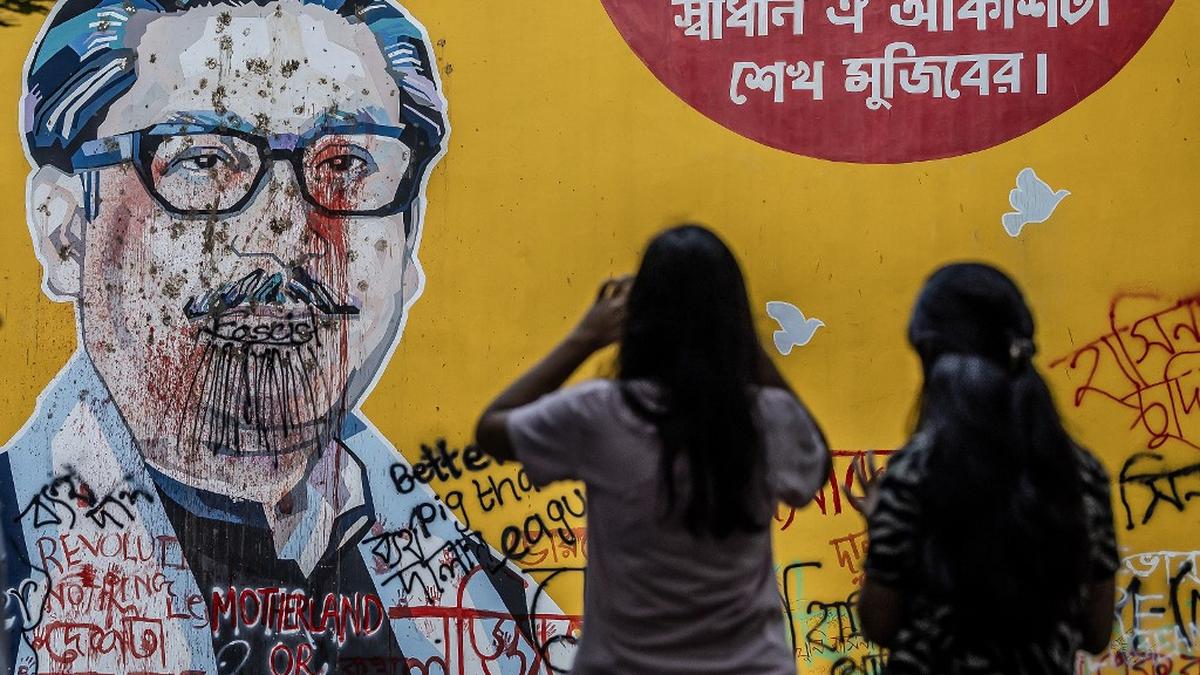Even as uncertainty prevails in Bangladesh with an interim government coming to power after widespread protests, the situation on ground is slowly returning to normal, Dhaka-based journalist Mohammad Ibrahim told The Hindu.
Muhammad Yunus, head and Chief Adviser of the newly formed interim government, had asked the police to return to duty within 24 hours, but they were “nowhere to be found on the roads of Dhaka”, and students across the city are managing traffic.

“For the last 15 years, the police have been one and the same with the [former Prime Minister Sheikh] Hasina government. They have hurt the public on many occasions. After the fall of the government, they are now scared to get back on the streets, fearing retaliation,” Mr. Ibrahim, a correspondent with the Dhaka Tribune, said.
“Students have been controlling traffic since August 6. They are also cleaning roads and helping the city recover from the aftermath of the protests. Fire service staff and some Army personnel have joined them. We are expecting the police to start working soon,” he added.
With many killed in the protests, restoring Bangladesh to normalcy is a slow process. Speaking to The Hindu, Tozammel Hasan a bank employee who himself was part of the protests said, “Buses, taxis and autorickshaws are back on the road. Markets are open. Everyone is heading to work like before. Only the metro services are yet to resume,” Tozammel Hasan, a bank employee who participated in the protests, said. He agreed that the students were inexperienced in managing traffic, which sometimes led to congestion and chaos, but they were trying their best.
Also Read | Hope Indian investments in Bangladesh are safe: Nirmala Sitharaman
Schools and colleges have not yet reopened in Bangladesh. “They are giving the students time to recover from the physical and mental trauma of the protests. Many are injured, many have seen a lot of killings. But they will be back in classrooms soon,” Mr. Hasan said, a resident of the Rayerbazar area with a large Hindu population and many temples, said. “No major incidents of violence against Hindus have been reported from my area of the city. Students have guarded the temples to ensure safety,” he said.
Reports of violence
Multiple incidents of violence against minorities have been reported from Bangladesh. Protests have also erupted across many cities in the country. Significant reports of fake news on the violence have also been widely circulated, both in India and Bangladesh.
“Before I went to India, I used to hear that Muslims were not safe in India, I saw that reality was otherwise when I went there. The same is true for Bangladesh,” Mr. Ibrahim said, warning against hate-mongering .” He agreed that there had been incidents of violence against minorities. “The media portrayal of the violence is wrong. They are misusing videos and taking them out of context and misreporting. We need to be cautious about what we share and believe,” he said.
Professor Om Prakash Mishra, Head of Department of International Relations, Jadavpur University said Bangladesh is at “the cusp of momentous change”. “It can strengthen and institutionalise parliamentary democracy in the nation,” Prof. Mishra said. He also said “motivated campaigns” to view the country with “negative lens” would be harmful for all stakeholders. “Incidents of violence during and after the protests have been seen historically across the globe. How soon they bounce back from it is more important,” he said.
Prof. Mishra also hoped that the interim government would develop the right values for a better and normal administration, even if the transition proved to be difficult.




